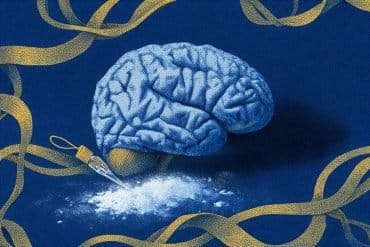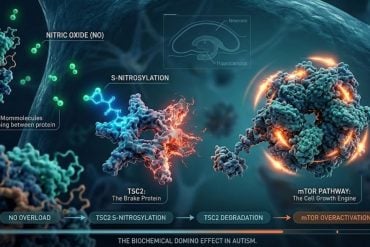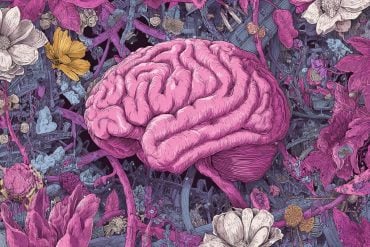Summary: A new study reports aging may not be a result of accumulative damage to the body, but instead is the result of “design” flaws in our DNA that orchestrates the development of single cells into an adult organism.
Source: University of Birmingham
A new study published in Genome Biology has challenged the traditional view that aging is a result of the accumulation of damage to the body’s hardware, such as the molecular damage to cells caused by oxidative stress.
Instead, the study suggests that aging is primarily a result of design flaws in the software of our bodies—the DNA code that orchestrates the development of a single cell into an adult organism.
The study considers the question, why does aging happen uniformly when current models work on the assumption that we accumulate “damage” randomly? If we imagine human development as the product of a sort of computer program encoded in the DNA, the paper suggests that aging is not an accumulation of damage to the hardware, but a process driven by flaws in the software, a radical departure from damage-based theories that until now have prevailed in aging research.
The study’s authors propose a model of aging as the outcome of the developmental software program and reflected in shifting cellular information states throughout the life course. The model explains why closely related species age at radically different rates, and it explains the major genetic, dietary, and pharmacological manipulations of aging in animals.
Viewing aging as an information problem, rather than a result of damage, has important implications for the development of interventions to slow or reverse the aging process.

Traditional anti-aging interventions targeting damage, such as those aimed at reducing oxidative stress or telomere shortening, may have limited success if aging is primarily a result of software programs.
According to the study’s authors, aging therapies will only be effective if they target the software of the body rather than the hardware. This new perspective has important implications for our understanding of aging and the development of interventions to promote healthy aging.
Professor João Pedro Magalhães from the University of Birmingham who led the research, said, “Our model is controversial as it challenges the prevailing view of aging as a result of random damage to the body’s hardware. Instead, we suggest that aging is an information problem that is driven by design flaws in our body’s software.
“As the developmental program runs early in life, it is beneficial, but its runs later in life become detrimental and drive tissue degeneration and aging phenotypes.”
About this aging and genetics research news
Author: Press Office
Source: University of Birmingham
Contact: Press Office – University of Birmingham
Image: The image is in the public domain
Original Research: Open access.
“Ageing as a software design flaw” by João Pedro de Magalhães. Genome Biology
Abstract
Ageing as a software design flaw
Aging is inherent to all human beings, yet why we age remains a hotly contested topic. Most mechanistic explanations of aging posit that aging is caused by the accumulation of one or more forms of molecular damage.
Here, I propose that we age not because of inevitable damage to the hardware but rather because of intrinsic design flaws in the software, defined as the DNA code that orchestrates how a single cell develops into an adult organism.
As the developmental software runs, its sequence of events is reflected in shifting cellular epigenetic states.
Overall, I suggest that to understand aging we need to decode our software and the flow of epigenetic information throughout the life course.







